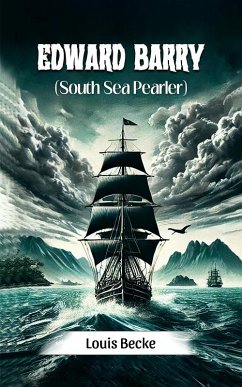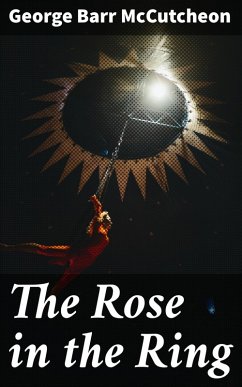
Edward Barry (eBook, ePUB)
South Sea Pearler

PAYBACK Punkte
0 °P sammeln!
In "Edward Barry," Louis Becke crafts a vivid tale set against the backdrop of the South Seas, weaving together themes of adventure, identity, and cultural conflict. The narrative unfolds through the eyes of its titular character, presenting a rich tapestry of island life intertwined with colonial influences. Becke employs a narrative style that is both descriptive and immersive, echoing the traditions of late 19th-century adventure literature. Notably, the dialogue captures the dialects and rhythms of the diverse peoples he encounters, reflecting a deep understanding of the region'Äôs compl...
In "Edward Barry," Louis Becke crafts a vivid tale set against the backdrop of the South Seas, weaving together themes of adventure, identity, and cultural conflict. The narrative unfolds through the eyes of its titular character, presenting a rich tapestry of island life intertwined with colonial influences. Becke employs a narrative style that is both descriptive and immersive, echoing the traditions of late 19th-century adventure literature. Notably, the dialogue captures the dialects and rhythms of the diverse peoples he encounters, reflecting a deep understanding of the region'Äôs complexities. Louis Becke was an Australian author and adventurer whose firsthand experiences in the Pacific Islands greatly informed his storytelling. His life as a trader and a sailor instilled in him a passion for the cultures and landscapes of the South Seas, making him a pivotal figure in introducing Pacific narratives to the literary canon. This exposure not only enriched his fiction but also instigated discussions surrounding colonialism and identity during a time of burgeoning imperialism. "Edward Barry" is not just an adventure tale; it is a profound exploration of belonging and transformation. Readers who resonate with tales of exploration and human connection will find Becke's work not only absorbing but also a unique glimpse into a world shaped by both beauty and struggle.
Dieser Download kann aus rechtlichen Gründen nur mit Rechnungsadresse in A, B, BG, CY, CZ, D, DK, EW, E, FIN, F, GR, H, IRL, I, LT, L, LR, M, NL, PL, P, R, S, SLO, SK ausgeliefert werden.













